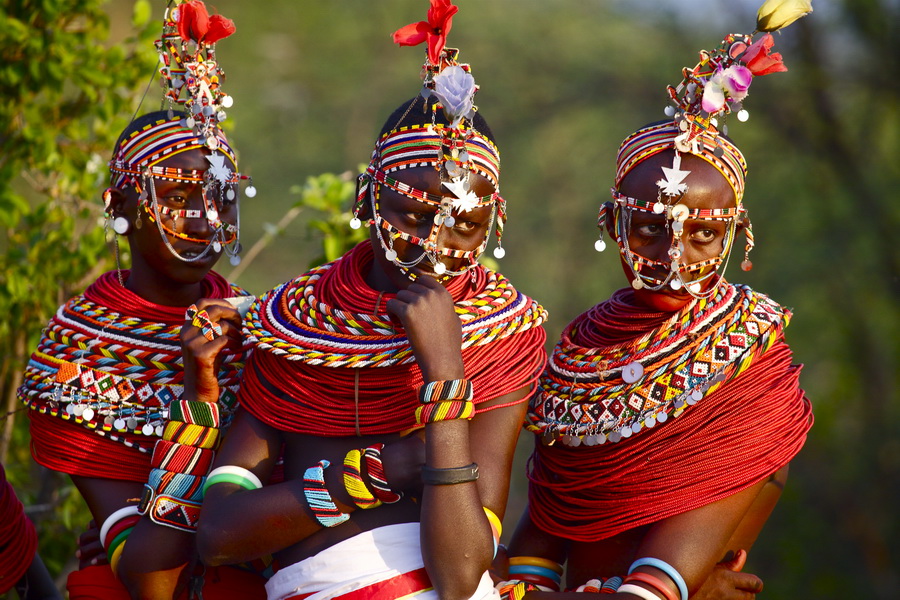The Samburu are semi-nomadic pastoralists from northern Kenya’s rugged deserts, closely related to the Maasai but with distinct traditions. Known as the "Butterfly People" for their vibrant adornments, they roam the Samburu National Reserve region with herds of cattle, goats, and camels. Their society revolves around age-sets, with young warriors (lmurran) protecting the community.

Homeland & Lifestyle

Dress & Adornment
Warrior Style:
Red-checked shukas with elaborate beaded chest plates
Ostrich feather headdresses for ceremonies
Metal arm bracelets from bullet casings (repurposed from colonial times)
Women’s Beauty:
Neck coils stretching up to 25 loops
Beaded corsets (nkapor) with geometric patterns
Shaved heads with ochre butter gloss
Traditional Food
Mursik: Fermented milk with charcoal ash (a probiotic superfood)
Nyirinyiri: Sun-dried meat mixed with blood and fat
Blood & Milk Cocktail: For warriors’ strength (drawn from live cattle)
Foraged Wild Fruits: Like loshoroi (desert dates) during droughts
Dance & Music
Lkipirat: Young men jump competitively to attract brides
Sakabula: Women’s neck-jiggling dance with beaded collars
Singing Wells: Harmonic cattle calls while digging desert wells
Moonlight Storytelling: Elders share tales of Nkai (their god)
Cultural Experiences
Warrior Training: Learn spear-throwing and lion tracking
Beading Workshops: Craft jewelry with Samburu women
Manyatta Sleepover: Stay in a dung-plastered hut
Singing Wells Visit: Witness incredible human-cattle teamwork

